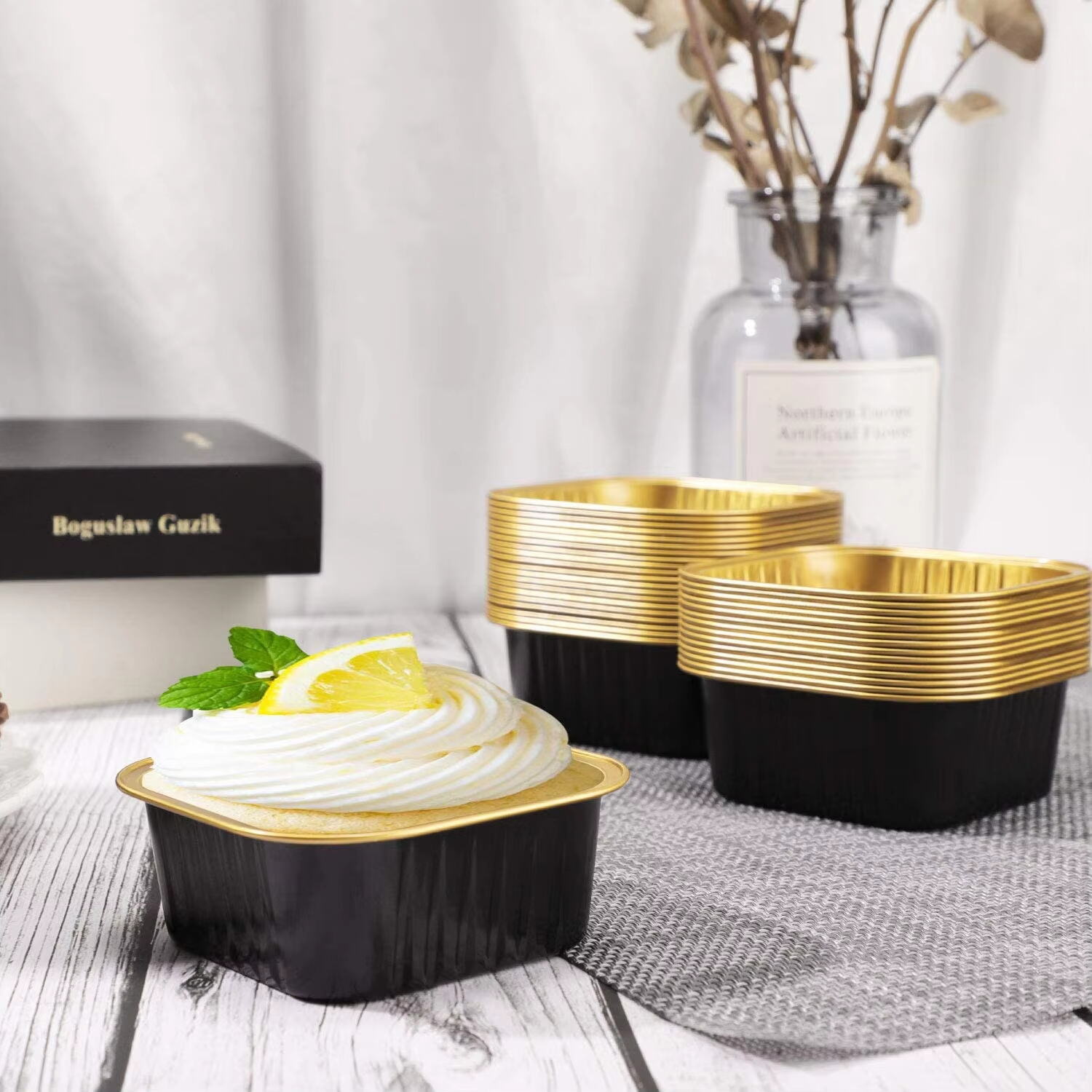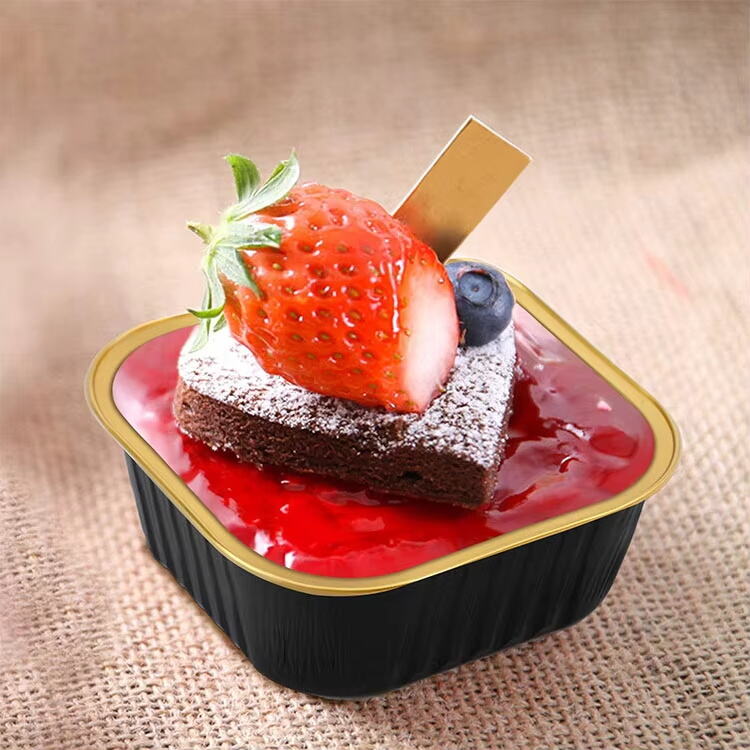Benefits of Aluminium Containers for Food Packaging
Lightweight and Durable Design
Aluminum containers strike a great balance between lightness and toughness, which is why they work so well for packaging food items. Glass and ceramic options tend to be much heavier, driving up shipping bills quite a bit. Aluminum cuts down on those costs while still holding up pretty well against impacts. The material just doesn't break as easily, so things stay safe during storage and when moving around warehouses or delivery trucks. Another plus point is how aluminum holds its shape even when temperatures fluctuate, meaning these containers last longer than many other materials out there. For companies looking to save money but still want something reliable and secure for their products, aluminum makes a lot of sense in the long run.
Superior Heat Conduction
Aluminium containers really shine when it comes to conducting heat, which makes them great for cooking and heating stuff up. The metal spreads heat pretty evenly across surfaces, so food tends to cook more consistently. Some research suggests this can cut down cooking times by around 20%, though results may vary depending on what exactly is being cooked. Beyond saving energy, this even heating helps maintain better food quality overall. Another big plus? These containers work well for freezing meals ahead of time and then reheating later without messing up the texture or flavor too much. That's why so many home cooks and professional kitchens keep reaching for aluminiumware when they want something that handles multiple temperature extremes while still performing reliably.
Eco-Friendly and Recyclable
When it comes to eco-friendly packaging options, aluminium stands out because it can be recycled over and over again without losing its quality. Most materials degrade after recycling, but not aluminium. This makes it a real asset for creating closed-loop systems where waste gets turned back into useful products. The numbers are impressive too. Recycling aluminium uses about 95 percent less energy compared to making new aluminium from raw materials. With more companies looking for green alternatives these days, aluminium containers have become increasingly popular among businesses that care about their environmental footprint. Choosing aluminium means getting tough packaging that lasts while helping cut down on overall waste generation across industries.

Ideal Hot Foods for Aluminium Containers
Baked and Roasted Dishes
Aluminum pans work really well for baking stuff like cakes, cookies, and bread thanks to how evenly they spread heat throughout the oven. When using these containers, bakers notice that everything tends to cook more consistently across the board. No more dealing with burnt corners while the middle stays raw. The shiny surface of aluminum does double duty too. It reflects heat back into the food which keeps things moist during baking, making those treats taste better and feel nicer on the tongue. Plus, this same reflective quality creates something close to a natural nonstick effect. Less sticking means fewer stuck-on bits left behind after cooking. That translates to less mess overall and faster cleanups, which makes life easier for anyone working in a busy kitchen environment.
Grilled Meats and Vegetables
Meats and veggies cook really well in aluminium containers because they hold up so good under intense heat. Most people don't realize how tough these metal trays actually are. They can go right onto the grill or into those big BBQ pits without warping or melting away. What makes them special is that they lock in all those juicy bits from the meat during cooking, making everything taste better and stay tender too. For veggies, the containers help keep them crispy on the outside while letting them soak up that nice smoky flavor from the fire. That's why so many backyard chefs swear by them. Aluminium just works great outdoors, which explains why it remains popular among folks who love firing up the grill.
Frozen Food Storage and Reheating
Preserving Freshness in Freezers
Aluminum containers work really well for keeping frozen foods fresh because they stop things from going bad over time. A big plus is that these containers stop freezer burn from happening, something that makes food taste worse after sitting in the freezer too long. The lids on most aluminum containers seal pretty tightly, so cold stays inside while dampness gets kept outside, which helps food stay good longer. Aluminum also acts as a shield against smells and extra moisture getting into the container, so whatever's inside keeps its original taste. Plus, lots of aluminum containers have spots where people can write labels, making it much easier to find stuff in the freezer without guessing when something was put there.
Safe Oven Use for Reheating
Aluminium containers work great when reheating leftovers. They're oven safe so folks can just pop whatever they want back in without having to transfer everything to another container first. Saves time obviously, and cuts down on dirty dishes too. These containers resist heat pretty well and generally keep their shape while warming up food. Still worth noting though that going beyond certain temperature limits might warp them or even melt if pushed too far. Most people find aluminium containers handy for keeping food stored properly and then heating it up later all in one go, as long as they stick to what the manufacturer recommends about temperatures.
Takeout & Delivery Excellence
Leak-Proof and Tamper-Evident
More and more restaurants are turning to aluminium containers for food delivery because they just work better than other options when it comes to keeping things sealed tight. The lids on these containers form a really good seal so nothing spills out while the food is being transported. This matters a lot since nobody wants their meal arriving all over the box or dripping everywhere. Another big plus is those tamper evident seals we see on many of them now. They give customers peace of mind knowing someone hasn't opened the container before delivery, which builds trust especially important for anyone running a takeaway operation. When both these aspects come together, the food stays fresh longer and arrives looking presentable, making the whole experience much better for whoever gets it at home.
Catering-Grade Reliability
Aluminium containers are pretty reliable stuff for catering events because they stack well and just plain hold up over time. The fact that they stack saves tons of space, which is why so many caterers grab them when organizing big events where room gets tight fast. These containers also handle the rough ride during transport and all the moving around at the event itself without messing with food safety standards. Food stays looking good too. What makes aluminium really stand out though is how versatile it is. A single container can hold several different menu items, cutting down on the hassle of managing multiple types of packaging throughout an event.

Foods to Avoid and Safe Practices
Acidic and Salty Foods
Knowing what kinds of food work well in aluminium containers makes all the difference. Acidic foods such as tomatoes actually react with the metal surface, changing how things taste and sometimes making food less good overall. Salt is another problem because it causes small holes to form in the container walls over time, and this definitely shortens how long the container will last before needing replacement. People who store their leftovers or prepare meals ahead should learn which items belong where. Avoiding problematic combinations keeps both the food tasting right and the containers from getting damaged too quickly.
Composite Film Solutions
Certain foods just don't play well with aluminum, but composite film linings have become a real game changer in packaging solutions. These special coatings basically act as barriers between the metal and food products that might otherwise cause reactions or spoilage. When selecting materials for these linings, food manufacturers need to do their homework on different options available in the market today. The right choice depends heavily on factors like acidity levels, storage temperatures, and how long the product needs to stay fresh before consumption. Some companies even conduct small scale tests first to see how various lining materials perform under actual storage conditions.
Compliance with Safety Regulations
Getting aluminium containers up to food safety standards matters a lot for businesses dealing with food storage and transport operations. Following the rules from food safety regulators isn't just about ticking boxes it actually stops potential health problems down the line and builds trust among customers who buy products stored in these containers. The labels stuck on aluminium packaging need to be clear too. They should tell handlers exactly how long items can stay safe inside, what temperatures are acceptable during transport, and any special handling instructions. When all these elements line up properly, everyone from warehouse staff to supermarket shoppers ends up with better protection against contamination risks throughout the entire supply chain.
FAQ
Are aluminium containers safe for microwave use?
No, aluminium containers are not safe for use in a microwave as they can cause sparks and damage to the appliance.
How can aluminium containers prevent freezer burn?
Aluminium containers prevent freezer burn through tight-sealing lids that keep cold air in and moisture out, preserving the food's integrity.
Can acidic foods change the taste if stored in aluminium containers?
Yes, acidic foods can react with aluminium and alter the flavor, which is why it's important to use composite film linings or avoid storing such foods in aluminium containers completely.


